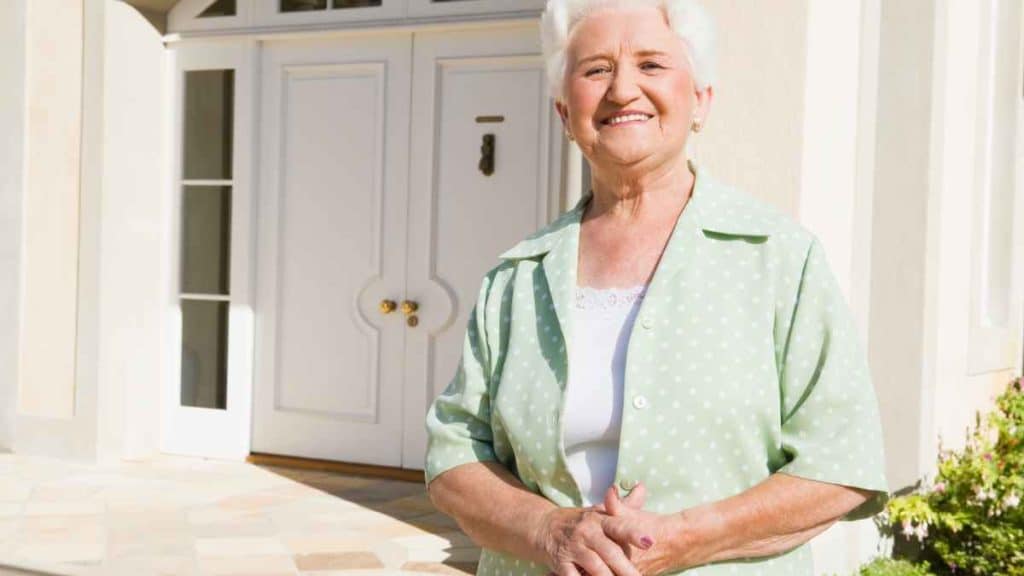Caring for an aging family member or friend is a tremendous responsibility that must be handled with love and intention. Older adults often need more assistance with day-to-day activities and basic safety measures. Creating an environment where seniors feel comfortable and secure — whether at home or in a care facility — is essential to their overall well-being.
Precautions may vary based on the elder’s personal needs, but many apply to most living situations. You will also need to consider whether your loved one lives alone or in the care of others. Both big and small changes are required to ensure older adults are well cared for and protected wherever they reside. Here are some ways to create a safe and comfortable environment for a beloved senior.
1. Properly Research Facilities and Caregivers
Sometimes your loved one will require more care than you or other friends and family members can provide. At-home care nurses and assisted living facilities are popular options for when you need more help. Unfortunately, not all providers are the same, so do your due diligence before selecting one. Thoroughly vet any at-home caregiver and the organization they work for. Visit any potential living facilities, pay close attention to the current residents, and don’t be afraid to ask questions.
If you determine a care facility is required, read reviews online and learn about the experience of other families. Especially keep your eyes peeled for mentions of a family hiring a nursing home abuse attorney or filing formal complaints. These red flags indicate that you need to steer clear of that facility and find another option. You could also ask other friends and family members if they have any recommendations based on their personal experiences.
2. Make Bathrooms Accessible
Ideally, your loved one will be capable of aging in place for now. If that’s the case, you’ll need to ensure the safety of their home environment.
Bathrooms are one of the most essential rooms in any home and, unfortunately, one of the most hazardous for individuals with mobility issues. You’ll want to ensure enough room for walkers or wheelchairs, which could require remodeling and reconfiguration. However, some solutions are easier to put in place. For example, installing grab bars near the toilet and in the shower will help your loved one get up and down more easily.
Slippery surfaces are a fall hazard for anyone, especially older adults. Installing non-slip flooring and adding non-slip treads in the shower or bathtub are thus other essential changes. In addition, installing a new shower may be necessary if the entry threshold is too high. Having to step in and out of a tub can be dangerous for aging adults, so avoid this setup.
3. Prevent Falls
Falls among those 65 and over contributed to over 36,000 deaths in 2020 and over 3 million emergency room visits. Helping to prevent falls is therefore one of the best things you can do for an aging family member.
If your loved one’s home has stairs, install handrails on both sides and ensure adequate lighting. In addition, check that any rugs are firmly attached to the floor to avoid slips. If the elder in your life uses a walker, make certain there’s enough room to easily navigate the space.
Avoiding clutter and keeping electrical cords away from walking paths are other essential components of fall prevention. Arrange all furniture to enable free movement through rooms. Furniture like chairs and couches should be at the right height for your loved one to get up and down. Pets can also be fall hazards, so train them not to jump on or walk in front of people.
4. Install an Alert System
Medical and security alert systems are a must-have for the homes of aging individuals. These devices can be life savers in an emergency, especially if an older adult lives alone. Medical alert systems are designed to call for help and are essential for aging loved ones who live independently. These systems can be worn as a bracelet or necklace with a button notifying emergency services in case of a fall or other accident.
Security systems are another necessary component for homes with aging occupants. Unfortunately, older adults are targets for criminal activity like break-ins. A security system will alert the authorities to dangers and help deter criminals. When choosing a plan, you will want to consider ease of use, pricing, needed equipment, and the level of monitoring. Medical alert and home security systems will give you and your loved one peace of mind.
Caring for Your Loved One
Adults are living longer than ever, so accommodations are needed to help aging populations live comfortably and happily. Over three-quarters of U.S. adults over 50 say they want to stay in their current homes as long as possible. But, unfortunately, only 10% of homes are considered “aging-ready.” This statistic shows there’s a lot of work to be done to prepare for this life chapter.
If your beloved elder still lives at home, you should reexamine every part of the dwelling for potential hazards. If your family member will be in the care of others, you will need to do all necessary research to ensure their safety. Whatever the setup, lean on all the resources and support you need to navigate this new time of life.

